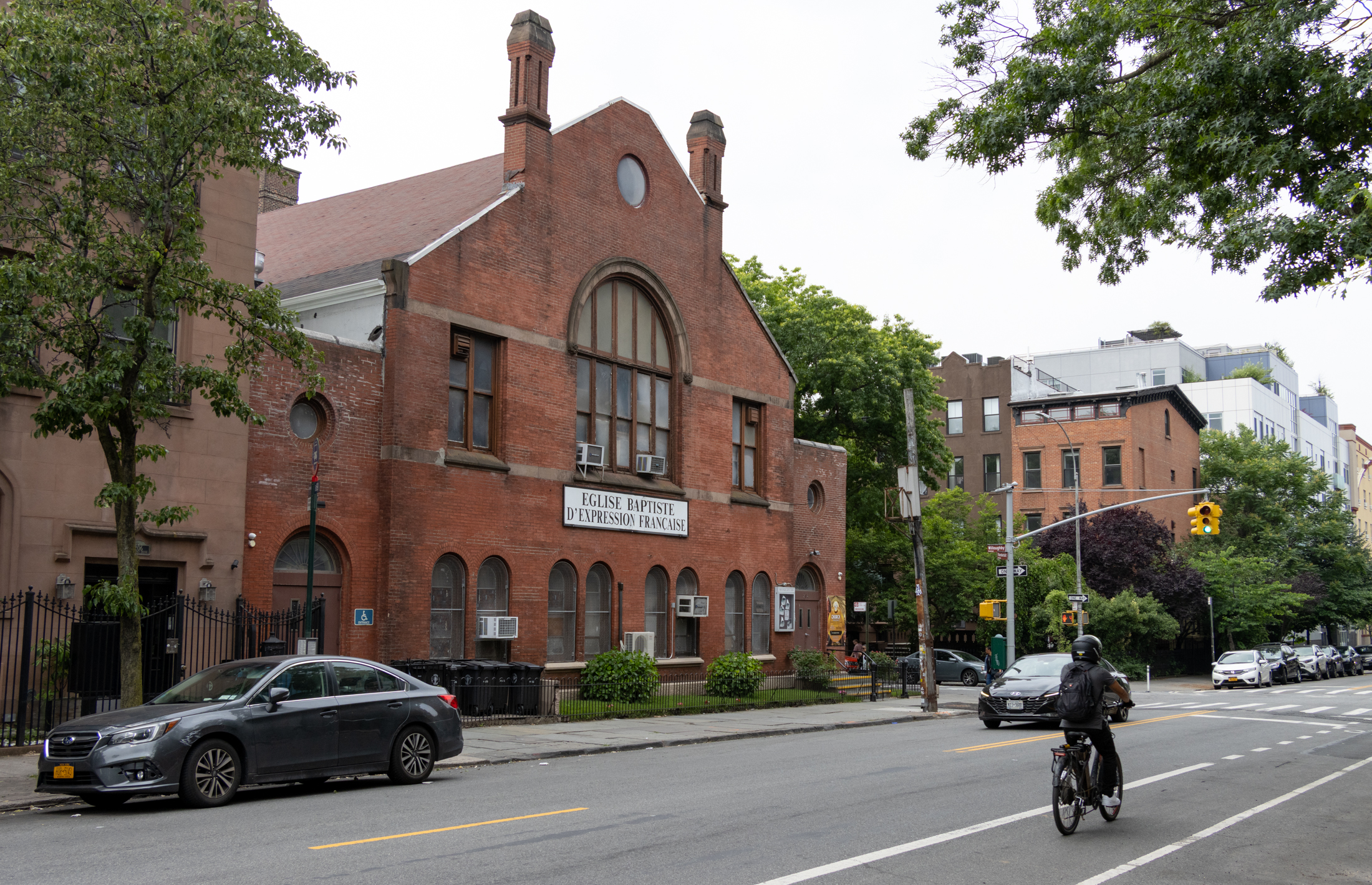Walkabout: By Justice Possessed, Finale
(Photo: Library of Congress) What does a man do when his entire adult life has been dedicated to the eradication of slavery, and then slavery is abolished? How does he handle the fact that he has won? Does a man of faith see that victory as proud proof of his piety, his godliness, his personal…


(Photo: Library of Congress)
What does a man do when his entire adult life has been dedicated to the eradication of slavery, and then slavery is abolished? How does he handle the fact that he has won? Does a man of faith see that victory as proud proof of his piety, his godliness, his personal greatness, or does he embrace his place in history with humility, content to once again be a shepherd to his flock? Surely these questions must have been on Henry Ward Beecher’s mind by the end of the Civil War. This preacher’s son from Connecticut used his faith, his intellect, his gift of oratory, his charisma, and yes, his flair for showmanship, to propel Plymouth Church in Brooklyn Heights to the front pages of the nation’s papers, and his name to the lips of presidents and kings. He was one of the great voices of the Abolitionist Movement, and Plymouth, a supporter of the Underground Railroad. When the battle was won, he came back to his congregation and his family. A simpler time, and simpler issues awaited him. But how do you come down from the heavens without tripping over some rocks and landing on your face?
Henry Ward Beecher was a man of many interests, and a new kind of preacher in America. He preached about God’s love and desire for people to be happy, a change from the sin, fire and brimstone that was most Protestant preaching of the time. He told jokes from the pulpit, spoke in terms that people understood, and with his new hymnals, encouraged congregational singing, and he even put flowers in the sanctuary. Sadly, he didn’t extend this happiness and love to his wife, Eunice, who he basically ignored. She was the sister of his college roommate, Ebenezer Bullard. They stayed married throughout his life, and she gave him ten children, but even contemporary descriptions of their union said that she was unloved. But Henry himself knew a bit about love. He was tall, muscular and well built, and had long flowing hair and the carriage of a warrior. His photographs belie the fact, but to many of the ladies, Henry Beecher was hot!
Debby Applegate, in her 2007 Pulitzer Prize winning biography of Beecher, called The Most Famous Man in America, postulates that as early as 1867, Beecher was fooling around. He was said to have fathered a child with Chloe Beach, the wife of his friend, Moses Beach. The little girl, Violet, was said to look so much like him that the evidence was clear. There were also other allegations of improper conduct by Beecher with some of the women in his congregation, but perfunctory investigations by a church board that really didn’t want to know, or want to have to do anything about it, went nowhere. In 1870, Elizabeth Tilton, the wife of his protégé,radical newspaperman Theodore Tilton, and a member of Plymouth Church, confessed to her husband that she had engaged in an affair with Henry Beecher. During the investigation, Theodore Tilton’s newspaper, the Independent, fired him, because his editors feared bad publicity.
A select group of influential Plymouth Church members knew about the alleged affair, and from behind the scenes, they mediated and negotiated to keep the matter quiet. Beecher put pressure on Elizabeth to recant her story, which she eventually did, in writing. Her husband, Theodore Tilton, put more pressure on her to recant her recantation. Theodore was angry. So angry that he told his friend, women’s rights pioneer Elizabeth Cady Stanton about the matter. She told her friend Victoria Woodhull, and the poo hit the revolving blades. You see, Victoria Woodhull was an outspoken advocate of women’s rights and free love. It meant the same thing then as it does now, but in Victorian America, the concept was absolutely shocking. Woodhull wrote eloquently about miserable marriages where divorce was not considered, where the husbands could cheat openly, while the women remained faithful, or faced social disgrace and rejection. She advocated that people would be much happier if open marriages and free love were instituted; where couples could remain together for family or appearance, as a business arrangement, but were free to find their own sexual happiness outside of marriage. Sounds like something Henry Ward Beecher could get behind, right? Most definitely not. He preached against free love and Victoria Woodhull on several memorable occasions.
Victoria Woodhull was a staunch member of the National Women’s Suffrage Movement, ironically, along with Beecher sister, Isabella Beecher Hooker. Two other sisters, Harriet Beecher Stowe and Catherine Beecher were dead set against Victoria, considering her a menace to proper Victorian society. She was the first woman to run for President, at a time when women could not even vote. Since Henry was also an advocate of women’s suffrage, Victoria Woodhull asked him to introduce her at an important speech in New York in 1872. She told him she knew of his affair with Mrs.Tilton, and thought since he was, in fact, practicing his own version of free love, that he should support her. He refused, and she threatened him with public exposure. He then pulled a Jimmy Swaggart, and fell at her feet, tearfully confessing his weakness, according to Victoria Woodhull’s biography. She wasn’t impressed. When that didn’t work, he promised to introduce her, but then didn’t show up, embarrassing her in public.
Well, she embarrassed him right back. She mentioned the affair in her speech. She then published an article in her journal, Woodhull and Clafflin’s Weekly, in which she claimed that the most famous preacher in America was practicing the very free love that he condemned in the pulpit. The scandal was now out in the light of day. Woodhull herself was arrested and imprisoned for sending obscene materials through the mail. Theodore Tilton was excommunicated from Plymouth in 1873, and a board of inquiry looked into Beecher’s conduct, and exonerated him. Tilton fired back by suing Beecher, who had once been his mentor and best friend, for slander, alienation of affection and criminal intimacy with his wife. A trial was scheduled, where the matter would receive the attentions of a court of law.
The trial began in January of 1875, and was in the papers, and on the lips of Brooklynites and New Yorkers from beginning to end. Tickets were scalped for outrageous amounts of money on the Brooklyn courthouse steps, and refreshment stands were set up, and souvenirs sold. Inside, poor Elizabeth Tilton changed her story several times, and was tossed like a football between the fame and influence of Henry Ward Beecher, her very public shame, and the anger and shame of her disgraced husband. Eunice Beecher, the upstanding and long suffering wife, was Henry’s finest witness, as she declared that she didn’t believe the allegations, and never would. It finally ended in July, when the jurors deliberated for six days without ever coming to a verdict- a hung jury. A second board of inquiry was held at Plymouth, and again, they exonerated Henry Beecher. Two years later, Elizabeth Tilton again asserted that there had been an affair, and she too was excommunicated from Plymouth.
The affair and trial didn’t cost Henry Beecher his job at Plymouth, but it certainly took the shine off his pedestal. His sister, Isabella Beecher Hooker, split from the family, siding with his accusers. Although he was revered and admired for the rest of his life, the scandal followed him into the grave. He reinvented himself on the lecture circuit, and paid back his massive legal and personal debt. He remained Plymouth’s popular minister, still filling the pews, until his death. In the end, he died of a cerebral hemorrhage on March 8, 1887. Brooklyn declared a day of mourning, and his funeral procession was led by a black commander of the William Lloyd Garrison Post in Massachusetts and a Virginia Confederate General and former slave holder, walking arm in arm. Henry Ward Beecher was buried in Green-Wood Cemetery on March 11, 1887, survived by his wife Eunice and four of his nine children. His legacy today remains strong and impressive: he helped end slavery in the United States. His statue stands in Cadman Plaza, a tribute to one of Brooklyn’s most important and influential men. Another statue stands in the courtyard adjacent to Plymouth Church, honoring Plymouth’s first pastor. Like most great people, Henry Ward Beecher was a complicated, conflicted and often craven individual, incapable of controlling his baser nature at times, but also capable of moving heaven and earth. When he soared, it was on wings of eagles.
The research for this series comes from Debby Applegate’s biography The Most Famous Man in America, a Pulitzer Prize winner. Also referenced were the Brooklyn Daily Eagle, the Website for Plymouth Church of the Pilgrims, Wikipedia, and a lot of Googled information. Thank you, internet.





My own research indicates that at the end of his life Beecher or his family lived in 45-55 Pineapple Street, an apartment building erected in 1883 which towered over the smaller structures on the south side of Orange Street and looked down upon his beloved church. At the time, 55 Pineapple’s name was “The Columbia”. The building was stripped of much ornament, windows on the west side of the building were sealed, and smaller apartments created, as well as having apartment fireplaces removed, when reconstructed after World War One, but it was erected the same year as The Dakota.
Write that book, MM! Brooklyn buildings and the scandals they housed!
You nailed it, minard. Exactly right.
Most powerful and charismatic men engage in sexual activity outside their marriage. I think it goes along with Alpha Dog status, probably even for reasons we don’t yet fully understand. Some Alpha dogs have their affairs discretely with women who are devoted to them and would never do anything to hurt them, the senior George Bush and David Dinkins come to mind, and some are much more wreckless, Bill Clinton and JFK come to mind. I am sure that Beecher had affairs with at least a dozen women, Tilton was the one who blabbed and upset the apple cart. He needed to select his conquests more carefully but sometimes with great men, the hubris and the feeling of omnipotence takes over for rational behavior.
Thanks, Minard, fixed it.
Good story MM!
Beecher was a larger than life figure. His biography makes for good reading as he was involved in the great formative events of his day. The assassination of Lincoln evidently hit him very hard too.
One minor correction: The Applegate book is titled “The Most Famous Man in America”. It is especially interesting for us Brooklynites as this was his home and base of operations.
Sex scandals have taken down some of the biggest names in history. There is something about the allure of power that mightily attracts, and the arrogance that accompanies it, that assures these great men that they can get away with it, and, in fact, shouldn’t even be held to the standards everyone else is held to.
In all of these cases, it’s not the indescretion that brings them low, it’s the denial and cover-up.
Scandal! I love it!
Whoo! That was some ride! It sounds like Henry lived a life of extreme highs, semi-lows and nothing in the middle. He must have been amazingly schizophrenic. The portrait of Elizabeth looks exactly like a portrait of Jane Morris.